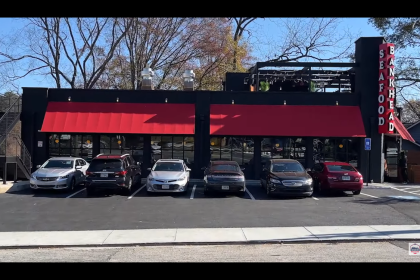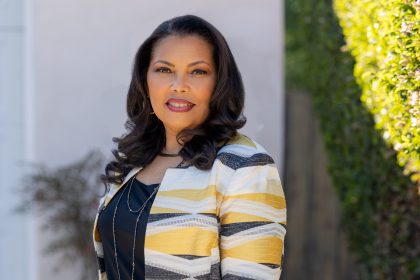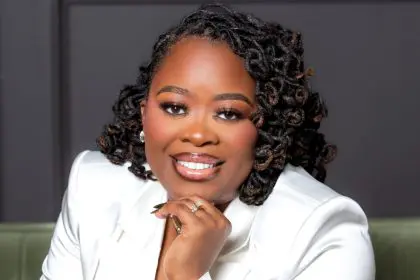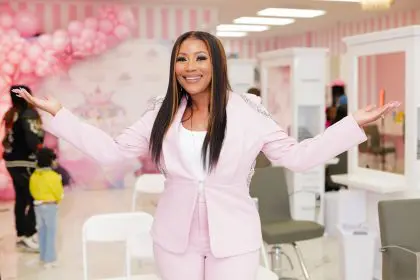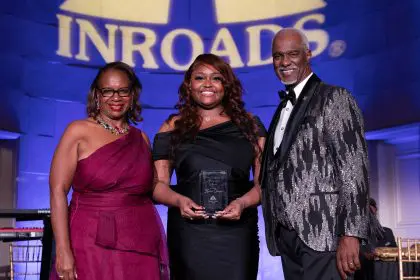 As the founder of Ms. CEO, Inc., Felicia Joy is on a mission to inspire and equip women entrepreneurs to start and grow profitable businesses. A noted author, Joy wrote Entrepreneurship: How the Middle Class Can Beat the Slow Economy, Earn Extra Income and Reclaim the American Dream in 2010. She also regularly contributes to Black Enterprise.com. A graduate of the University of Georgia, Joy’s background is in crisis management and corporate communications. She served as the youngest chief spokesperson for Hartsfield-Jackson Atlanta International Airport. –a. robinson
As the founder of Ms. CEO, Inc., Felicia Joy is on a mission to inspire and equip women entrepreneurs to start and grow profitable businesses. A noted author, Joy wrote Entrepreneurship: How the Middle Class Can Beat the Slow Economy, Earn Extra Income and Reclaim the American Dream in 2010. She also regularly contributes to Black Enterprise.com. A graduate of the University of Georgia, Joy’s background is in crisis management and corporate communications. She served as the youngest chief spokesperson for Hartsfield-Jackson Atlanta International Airport. –a. robinson
Tell us about Ms. CEO.
Ms. CEO was started in December 2008 with a goal of inspiring and encouraging women to be profitable entrepreneurs. I have a passion for women business owners that stem from the successful ones I saw around as a child. I also feel that it is my civic duty to help others excel. By nature, I am a shy person. Like many women, being bold and aggressive was not drilled into me growing up. They are skills that I had to acquire, and I want women and girls to know they can acquire them, too. More women need to do that — step outside their comfort zone. No more “doormat” mentality.
What was the impetus for creating Women Entrepreneurs Day In Georgia?
This event was created to showcase women business owners who have achieved success. By doing that, we are able to inspire women who are on the fence about entrepreneurship. By hosting it during the Georgia legislative session, we are able to reinforce our mandate of the need for more Georgia women entrepreneurs. We can encourage the legislators to get on board in regards to various levels of support. They are a tough, no-nonsense bunch, but the event was well received by them. The leadership team at Ms. CEO and our advisers were quite pleased at the recognition the event garnered.
Our next major event is the second annual Show! Shop! & Tell! on Saturday, July 23, at Puritan Mills near Atlantic Station. It’s a free event with free parking and lots of freebies! Attendees can shop for personal, household, hair care, wellness services, food — just lots of products and services. Register at sst2011.eventbrite.com/
Based on your book, what advice do you have for budding entrepreneurs who aren’t quite ready to make the full leap?
Launch a business as quickly as possible, but be certain that there is a market for it. Get advice from folks outside of the friends and family who normally support you. You’ll need the unbiased opinions of those who can look at what you are attempting to do. A second piece of advice: Don’t leave your job until you prove you can make money at whatever it is that you are trying to do. If you are running a business part time but also working a full-time job, and it is unprofitable, figure out why that is before you quit your job. Realistically though, now is the best time to start a business. If you can make it in this economy, you can make it in any economy.
A recent post of yours on Black Enterprise cautioned people against following their passion, but neglecting customer needs. Are you referring to a market base or the customer-client interaction?
Actually, I am referring to both. Passion and a viable business idea aren’t necessarily conjoined. I know that flies in the face of what all the pop business books say, but it is true. What you love to do may not make for a profitable business. I have a client who made a particular bite-sized pastry. People always told her that she should do it for a living. Well, she did, over the holiday season. There were so many orders! She was baking constantly, buying ingredients and delivering. She gave it up as quickly as she started it. It was her passion, but not a viable business that she wanted to pursue.
Give us your thoughts on business associations and urban communities.
When we look at the history of our country, small businesses have always been the foundation of America. Shop keepers, dressmakers, blacksmiths, what have you. To survive, these people had to stick together because what happened to one probably affected them all. Also, there was an unspoken contract with the communities they serviced. These communities needed to be safe, free from crime, and their institutions — schools and places of worship — had to be supported. In turn, businesses thrived. A well-run business association still does that today. Urban communities have to partner with them if anybody is going to thrive.






